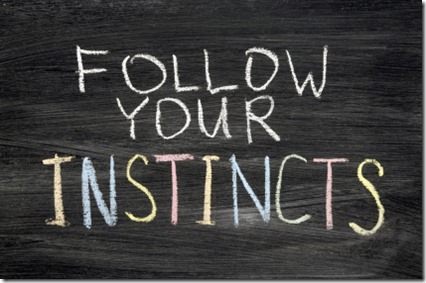What I've Learned In Business: Follow Your Instinct
Many years ago, a job applicant lied to me during his interview.
He wasn’t straight with me when I asked why he had left his previous job. When I called his previous employer after our interview, I learned that the story of his dismissal was far more complicated than he had indicated.
My instinct was clear: don’t hire this guy. As one of my favorite expressions says, “When someone tells you who they are, believe them.”
But since I had really enjoyed our first conversation, I called him in for a second interview. I wanted to give him an opportunity to explain why he hadn’t been more forthcoming. When confronted with what I had learned, he apologized profusely and explained that his bruised ego had temporarily gotten the better of him. His humility affected me—and despite feeling misled and having a nagging feeling that I should cut bait, I hired him anyway.
It was a mistake. I fired him two months later.
Suggesting that you trust your instinct doesn’t mean that you should ignore facts and empirical evidence. In the case above, my instinct matched the evidence before me—I just opted to ignore it.
I’m fortunate to have learned that lesson before a former NBC News journalist approached me about becoming a media trainer a few years ago. I wasn’t quite ready to add another trainer, but I really liked her and my instinct told me to pay attention. She was sharp, persistent (in the best way possible) and committed. I hired her. She’s now become my firm’s vice president, and our clients love her.
A growing body of social science demonstrates that instinct is often right—and that opinions formed within seconds can be accurate. In his book Blink, Malcolm Gladwell writes:
“The psychologist Nalini Ambady once gave [college] students three ten-second videotapes of a teacher—with the sound turned off—and found they had no difficulty at all coming up with a rating of the teacher’s effectiveness. Then Ambady cut the clips back to five seconds, and the ratings were the same. They were remarkably consistent even when she showed students just two seconds of videotape. Then Ambady compared those snap judgments of teacher effectiveness with evaluations of those same professors after a full semester of classes, and she found they were also essentially the same.”
Just because you have an instinct doesn’t mean you should follow it blindly. When you have a strong instinct, my suggestion is that you examine it carefully. Ask yourself whether your instinct could be due to unconscious biases. When hiring a job applicant, for example, ask yourself if your positive instinct exists because you liked the person, not because the person was actually qualified for the job.
But whatever you do, don’t ignore your instinct. Question it, examine it, and deconstruct it. Maybe even act on it. But if you ignore it, you’ll probably come to regret it.
This article is part of an occasional series about what I’ve learned from running a business. You can read other articles in this series here.


Boy is this right on. My major career mistakes have always been when I’ve ignored my instincts and talked myself into taking on a position or role when I saw numerous red flags.